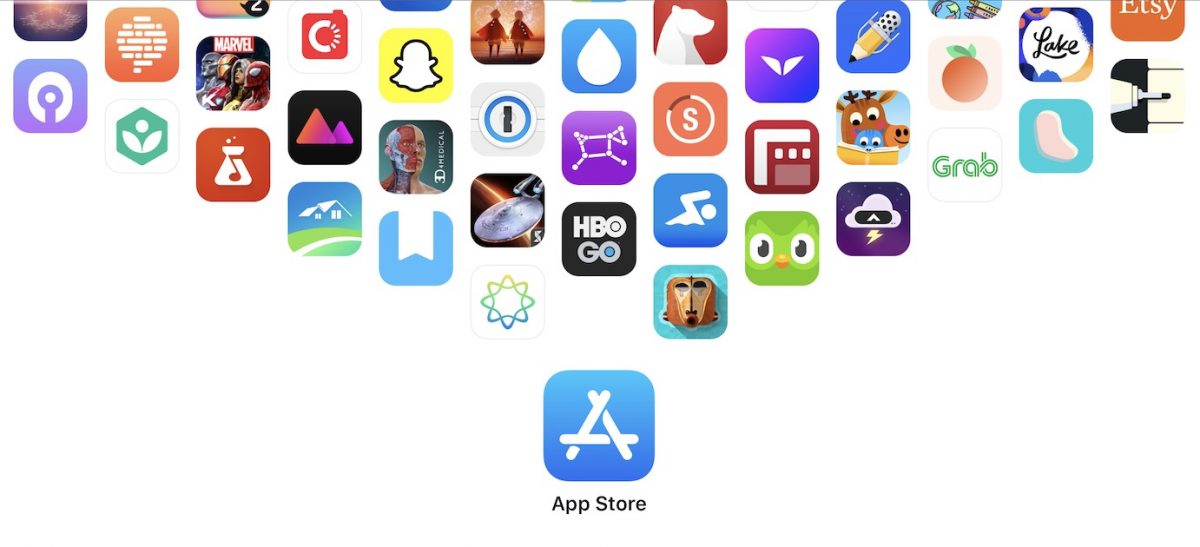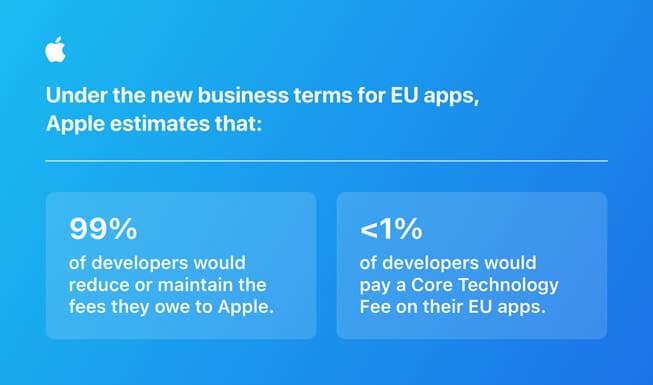In response to the European Union’s Digital Markets Act (DMA), Apple has unveiled substantial changes in its upcoming iOS 17.4 release, set to debut in March. Forced by the regulatory framework, these alterations encompass fundamental shifts in iOS, the App Store, and browser functionality within the EU.

iOS 17.4 supports external app stores and expands payment options for apps and wallets in Europe
A major shift in Apple’s iOS ecosystem is coming to Europe with the introduction of alternative app stores in iOS 17.4. This departure from Apple’s historically closed system will allow users to download apps from outside the App Store for the first time. However, to ensure user safety and privacy, all apps, regardless of their source, will go through a rigorous “baseline review” process combining automated checks and human inspections.
Further adding to user freedom, Apple is expanding NFC functionality on iPhones in the EU. This means alternative wallet and banking apps can now join the party, allowing users to tap-to-pay with more options than ever before.
Additionally, the App Store will offer greater flexibility for in-app purchases, enabling users to choose different payment service providers and even process payments through external websites. These changes aim to empower European iPhone users with more control over their apps and how they pay. However, the tech giant offers the following disclaimer on its website:
For apps that use alternative payment processing, Apple will not be able to issue refunds, and will have less ability to support customers encountering issues, scams, or fraud. Helpful App Store features — like Report a Problem, Family Sharing, and Ask to Buy — will also not reflect these transactions. Users may have to share their payment information with additional parties, creating more opportunities for bad actors to steal sensitive financial information. And on the App Store, users’ purchase history and subscription management will only reflect transactions made using the App Store’s In-App Purchase system.

In terms of the financial landscape, developers distributing apps on iOS within the EU will face a restructured fee system. This includes a commission of either 10% or 17%, contingent on the nature of transactions, and a 3% payment processing fee for those utilizing the App Store’s payment system. A noteworthy addition is the introduction of a “Core Technology Fee” of €0.50 per annual install for apps exceeding 1 million installations, with the majority of developers expected to experience reduced fees.

Apple acknowledges the risks associated with these changes, emphasizing its commitment to complying with the DMA’s requirements while prioritizing user privacy and security. Although these alterations are currently specific to the EU, Apple’s proactive beta testing with iOS 17.4 indicates a willingness to adapt globally in response to evolving regulatory landscapes.